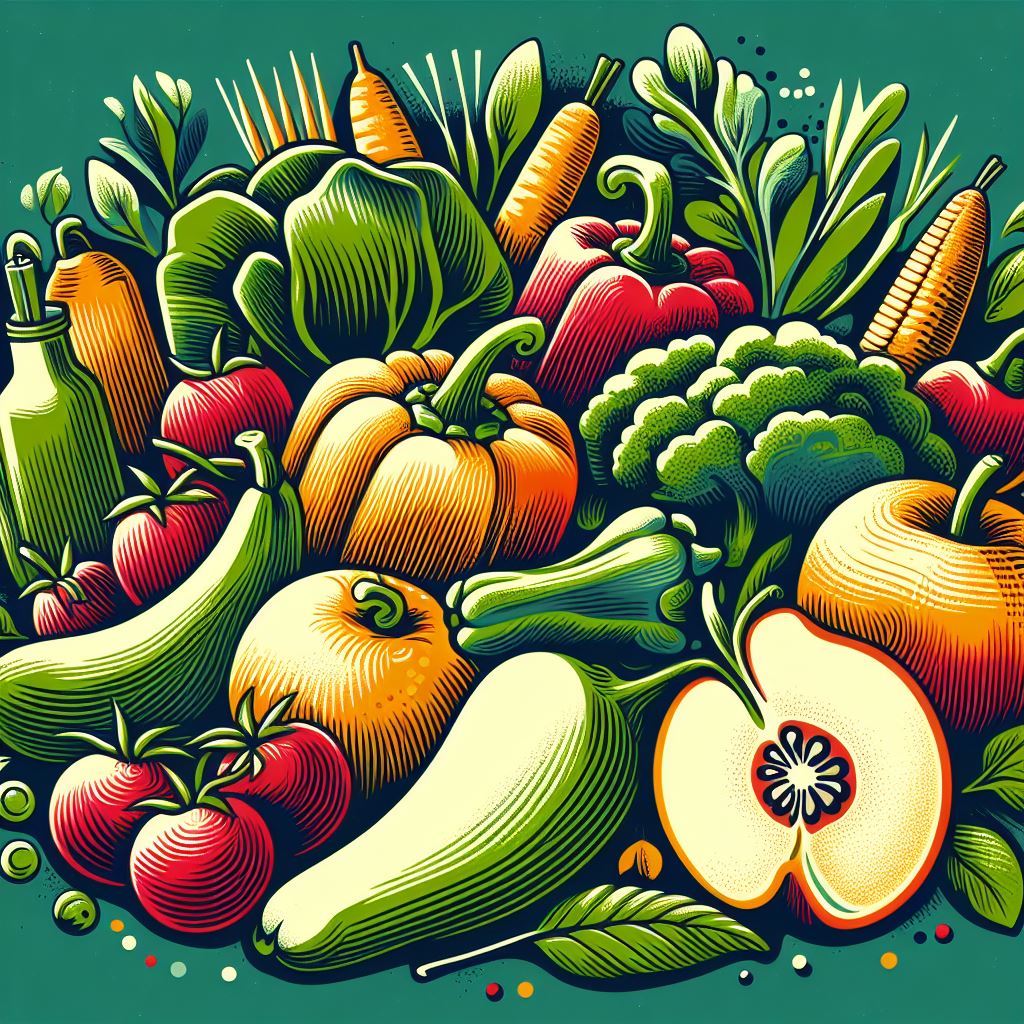In the epicurean empire, where taste buds reign supreme and gastronomes gather, a battle rages. It’s not over the last slice of truffle pizza but something far more fundamental—the skirmish between organic and conventional produce.
Table of Contents
Mythbusting 101: Organic vs. Conventional
Organic—the word itself conjures images of verdant fields, where fruits and veggies are serenaded to sleep by the gentle hum of Mother Nature. Conventional, on the other hand, evokes visions of industrial-scale farms, where robots might as well be plucking apples straight into your grocery cart.
But, dear food lovers, the divide is not just about pastoral poetry vs. dystopian dramas. It’s about what ends up on our plates.
A Bite into the Facts
- Pesticide Parade: Conventional crops often dance in a shower of chemicals, while organic farming practices whisper sweet nothings to pests to keep them at bay naturally.
- Nutritional Nuances: Studies suggest that organic produce might offer more antioxidants and less metallic autographs from herbicides and pesticides. Yet, the nutritional opera sings a complex tune with variations across types of produce.
- The Wallet Woe: Organic food typically carries a premium price tag, prancing around the market like it owns the place. Conventional produce, meanwhile, is like the budget buddy that never lets you down.
A List for the Sensible Shopper
- Wash all produce, whether it’s wearing an organic badge or not.
- Prioritize buying organic for items known to have higher pesticide levels.
- Remember, fresh is fabulous, but frozen can be equally nutritious.
The Table of Truths
| Aspect | Organic Produce | Conventional Produce |
|---|---|---|
| Pesticide Presence | Lower | Higher |
| Nutritional Value | Potentially higher in some vitamins and antioxidants | Consistent with organic, variable by crop |
| Cost | Higher | Lower |
| Environmental Impact | More sustainable practices | Depends on specific farming practices |
| Accessibility | Increasing but varies | Widely available |
Culinary Connoisseur’s Tips
- Splurging on organic? Store it properly to extend its shelf life and get your money’s worth.
- Adventurous in the kitchen? Experiment with both organic and conventional produce to see if you can taste the terroir.
And now, for a playful platter of Q&A:
You’ve Got Questions, We’ve Got (Organic) Answers
Q1: Will eating organic turn me into a superhero?
A1: Only if your superpower is paying extra at the checkout. Health benefits, yes. Capes and tights, optional.
Q2: Can I still be friends with someone who eats conventional produce?
A2: Absolutely, diversity is the spice of life—and salads.
Q3: Is it true that organic produce tastes better?
A3: Taste is subjective. What’s “flavorful” to you might be “meh” to someone else. Conduct your own taste test!
Q4: Does going organic mean I’m saving the planet?
A4: It’s one piece of the environmental puzzle. Like choosing a reusable straw, but crunchier.
Q5: Should I only buy organic produce from now on?
A5: Balance is key. Consider your budget, dietary needs, and ethical concerns. And remember, eating any veggies is better than none.
In the grand dining room of life, whether you lean towards the organic aisle or stick to conventional crops, the most important thing is to enjoy what’s on your plate. Eat well, live well, and may your culinary adventures be as rich and diverse as a well-stocked organic market. Bon appétit!

